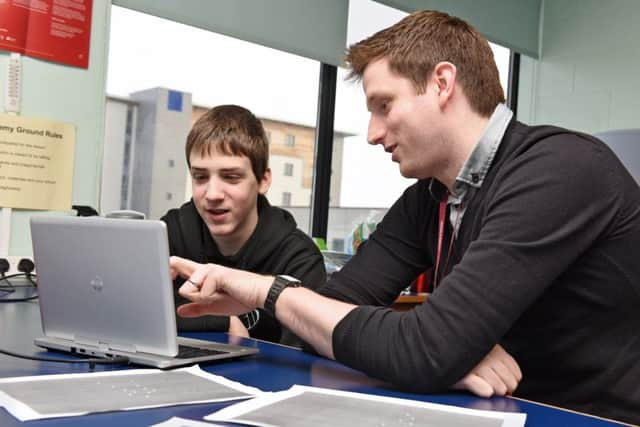Making the student experience count


At the University of Dundee we are celebrating both the Times Higher Education and International Student Barometer recognising that we offer the best student experience in Scotland. This is the sixth year in succession that we have achieved this position in the Student Experience Survey, while the university also ranked seventh in the UK and 19th in the world for overall average satisfaction in the 2014 ISB, the largest annual survey of international students in the world.
So what makes a student experience special? A university education is not confined to the seminar room or the laboratory and it is often the activities outside them that turn promising students into exceptional graduates that go on to have a global impact in their chosen field.
Advertisement
Hide AdAdvertisement
Hide AdExtracurricular activities, both academic and social, are a key part of Dundee’s student experience. Our students are encouraged to participate in volunteering as a means of enhancing their attractiveness to employers. Employability is embedded into everything we do because we have a duty to our students to give them the best possible grounding for the world of work. This also means cultivating and strengthening academia-industry connections and the fact more of our students graduate into the professions than from any other Scottish university is testimony to these efforts.
The partnership we enjoy with Dundee University Students’ Association is absolutely vital to our ability to offer a first-class student experience. DUSA is continually voted one of the very best students’ unions in the UK, precisely because it is so much more than a union – it is a centre of community life. Last weekend more than 2,000 people from all over the country flocked to DeeCon, Scotland’s largest free convention for anime, comics and gaming fans, just one of the many fantastic events held at DUSA each year.
The university’s record on widening access to higher education for students from the most deprived sections of society is something I am very proud of, with the latest Scottish Funding Council figures showing that Dundee has made the biggest improvements in the country. It is particularly pleasing to see the very strong improvement of the proportion of MD40 (40 per cent most deprived) entrants in the highly competitive subjects of Medicine and Dentistry. For September 2015, entry applications from MD40 students are up again by 15 per cent and offers by 18 per cent.
As an institution, we have made good progress in Learning and Teaching and last year we improved our performance in the National Student Survey, where we are moving ahead strongly compared to the Scottish average. The percentage of first class and 2:1 degree classifications increased substantially and we are seeing encouraging admissions trends.
Dundee is focused on an ambitious vision to become Scotland’s leading university, transforming lives locally and globally. We are doing this, in part, by developing a range of Massive Open Online Courses (MOOC). Our first MOOC will be on antimicrobial stewardship, a global education programme for healthcare professionals that addresses antibiotic resistance, one of the most serious health problems facing the world today.
Innovative team-based learning that addresses real-world problems underpins our teaching focus and this was borne out when students won a hat-trick of major prizes at the iGEM (International Genetically Engineered Machine) world jamboree in Boston for their project to develop The Lung Ranger, a device to help combat some of the effects of cystic fibrosis.
Another innovative approach which helps our students broaden their horizons is the Learning From Life placement that Education students undertake in a location other than a school.
There is one further initiative I would like to mention – our recent Hack the University event. Using skills and perspectives from different disciplines, students came together to develop ideas to improve a range of university services and rethink the way the curriculum is developed and delivered. Students had the chance to shape the future direction of their university and it is only right that they do so.
• Professor Karl Leydecker is vice-principal for Learning and Teaching at the University of Dundee, www.dundee.ac.ukSEE ALSO